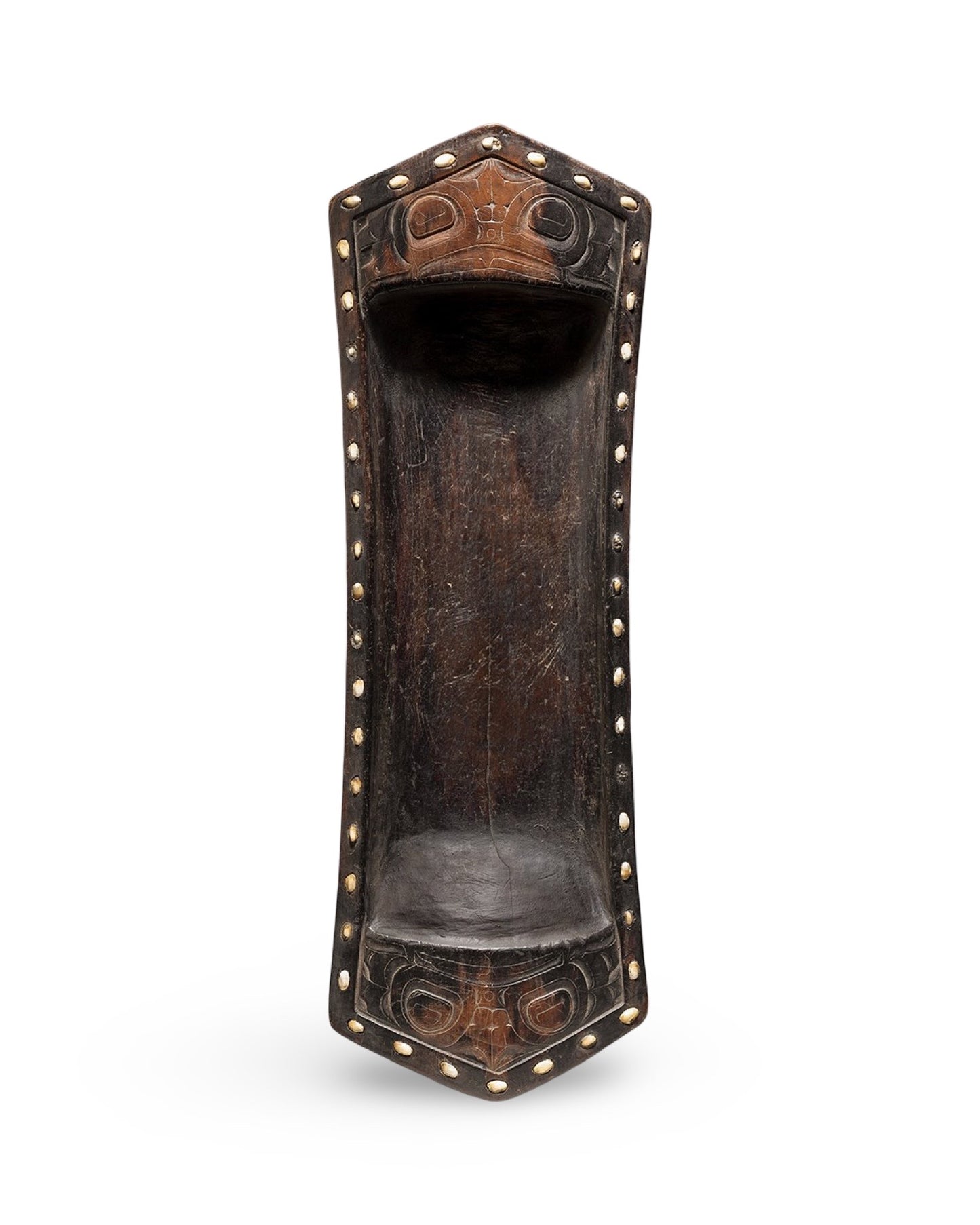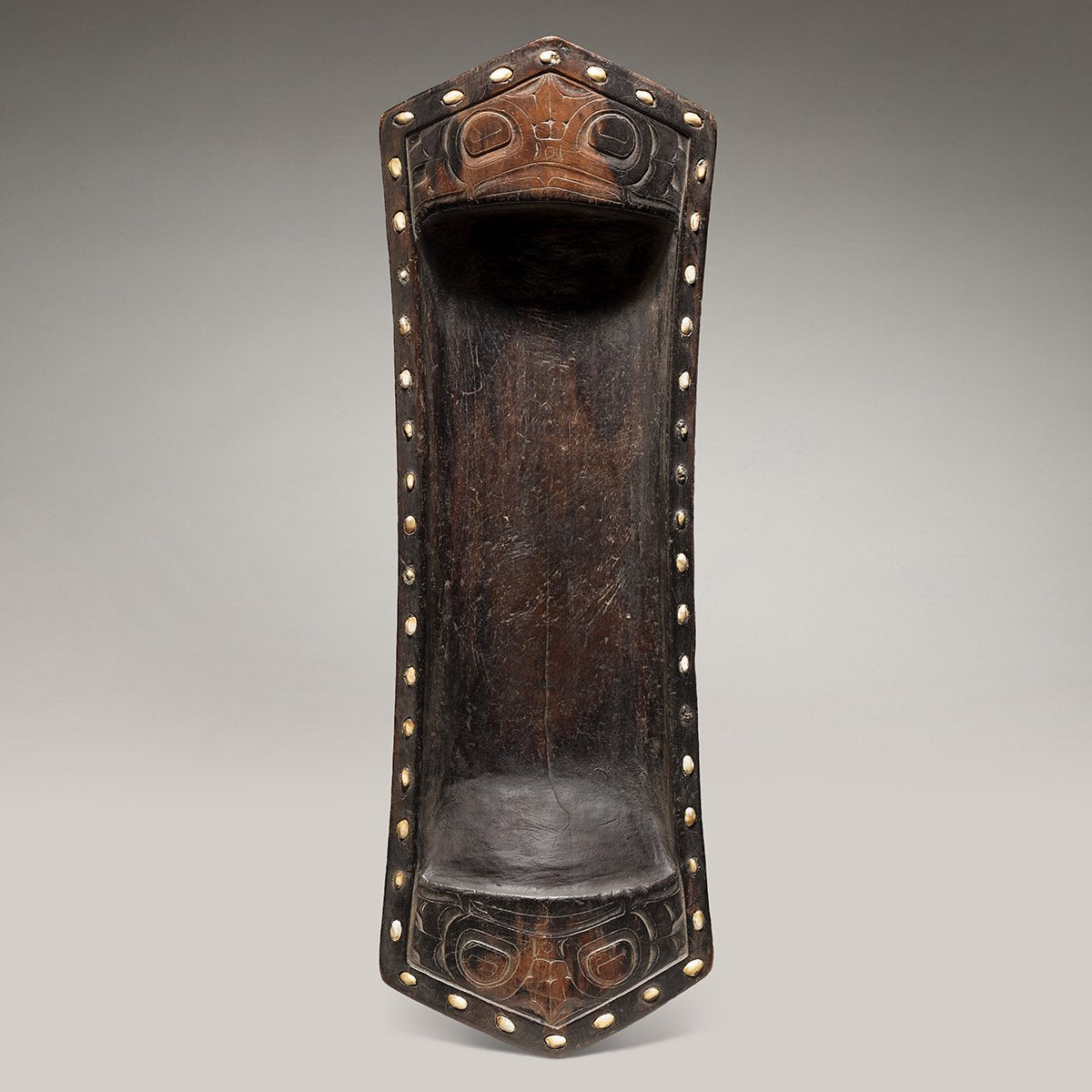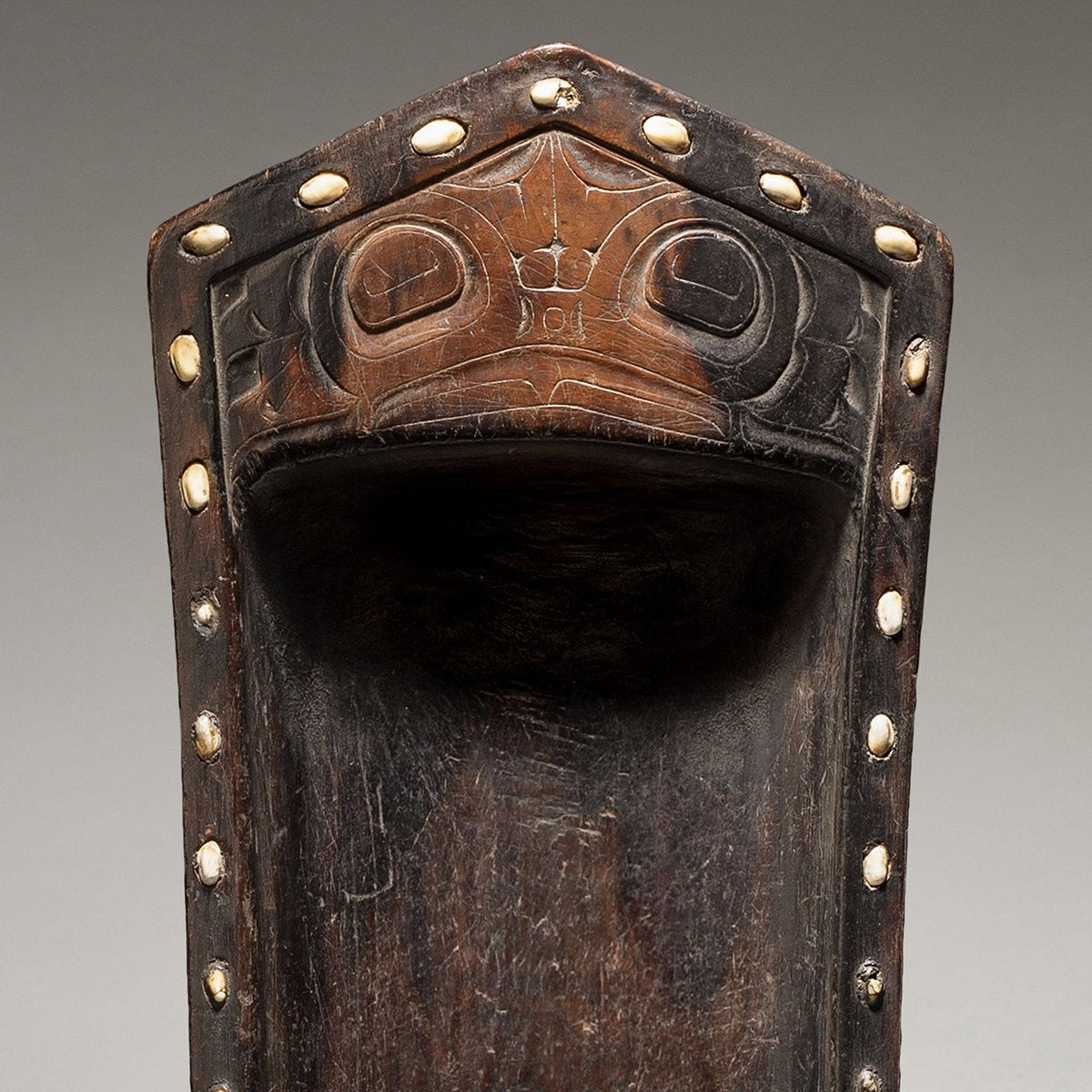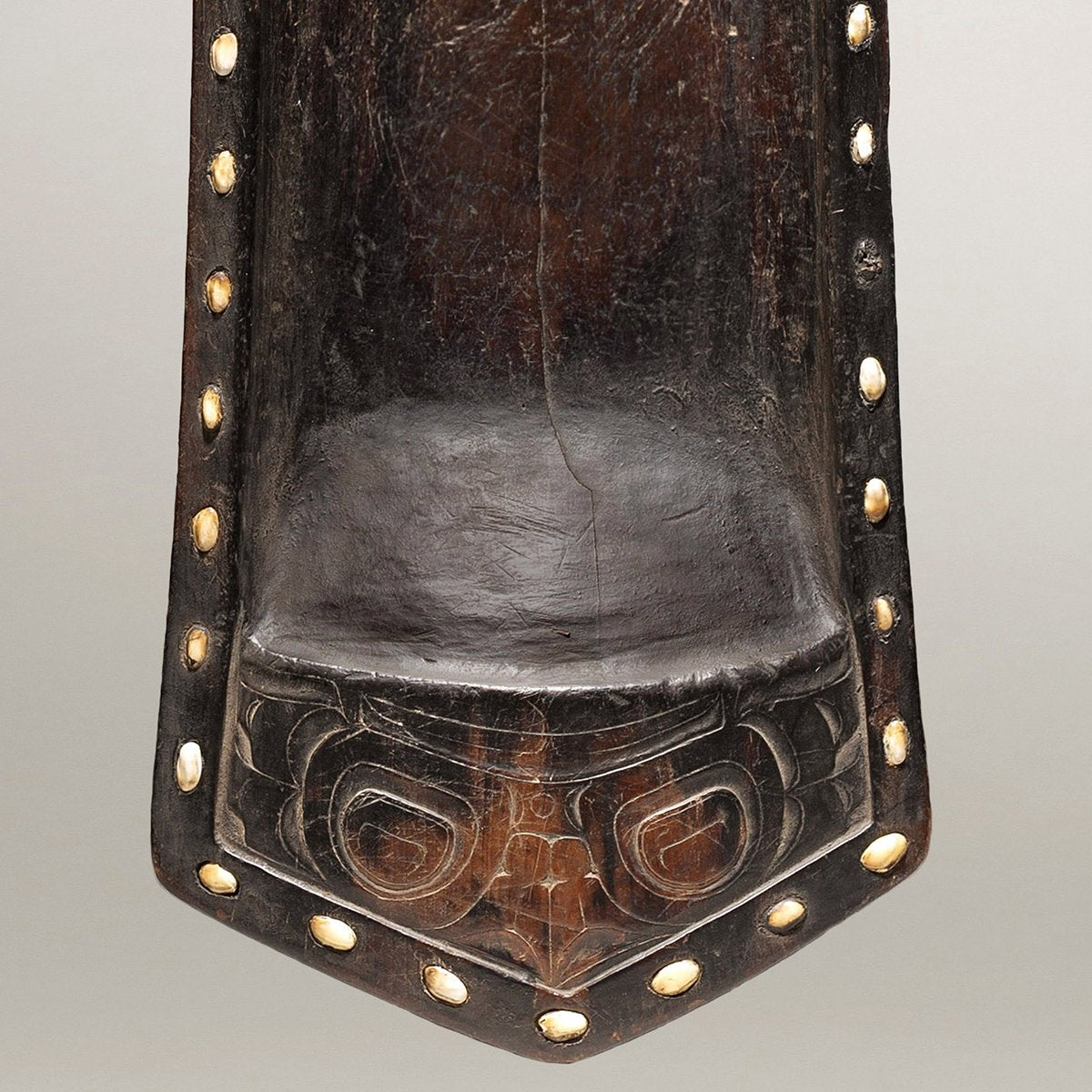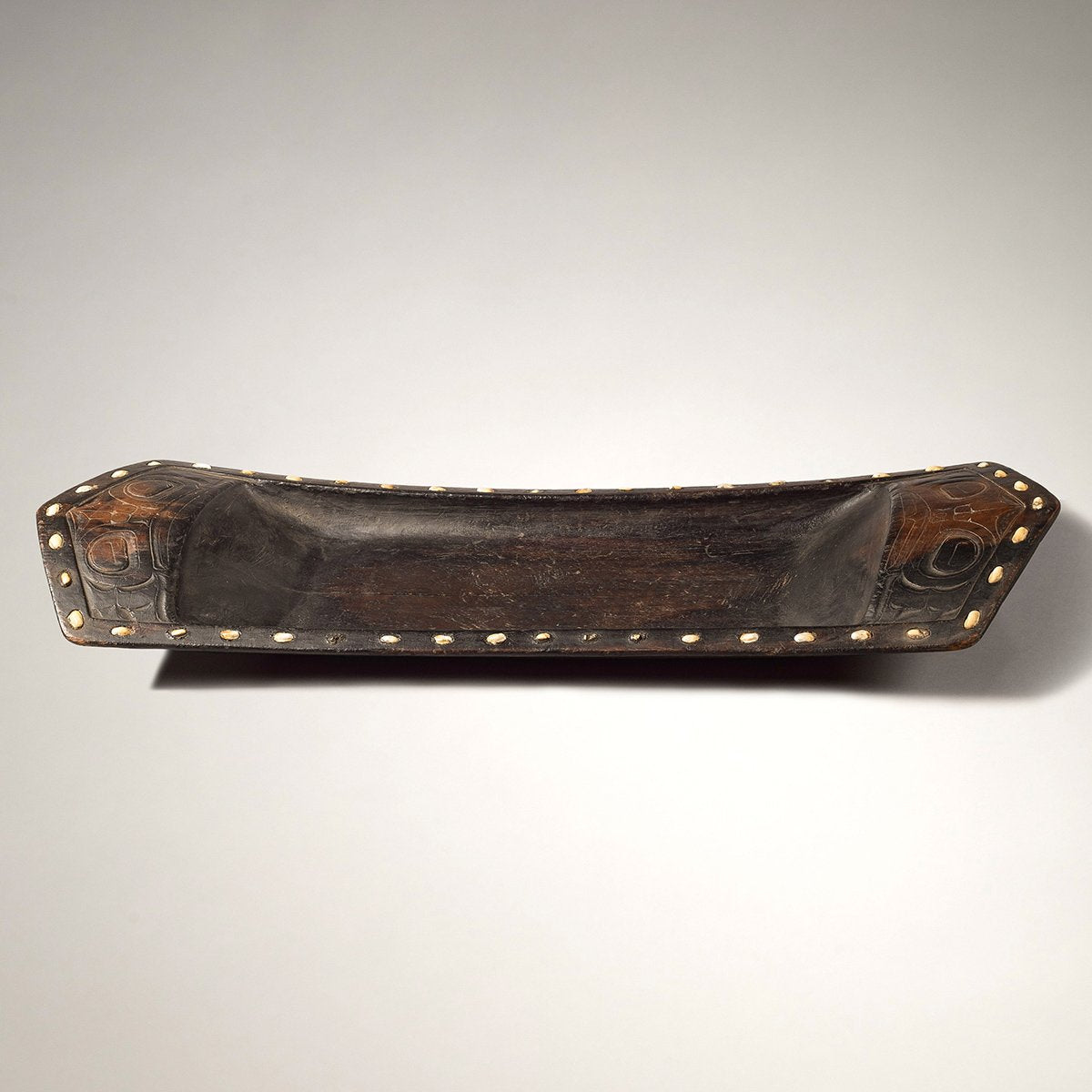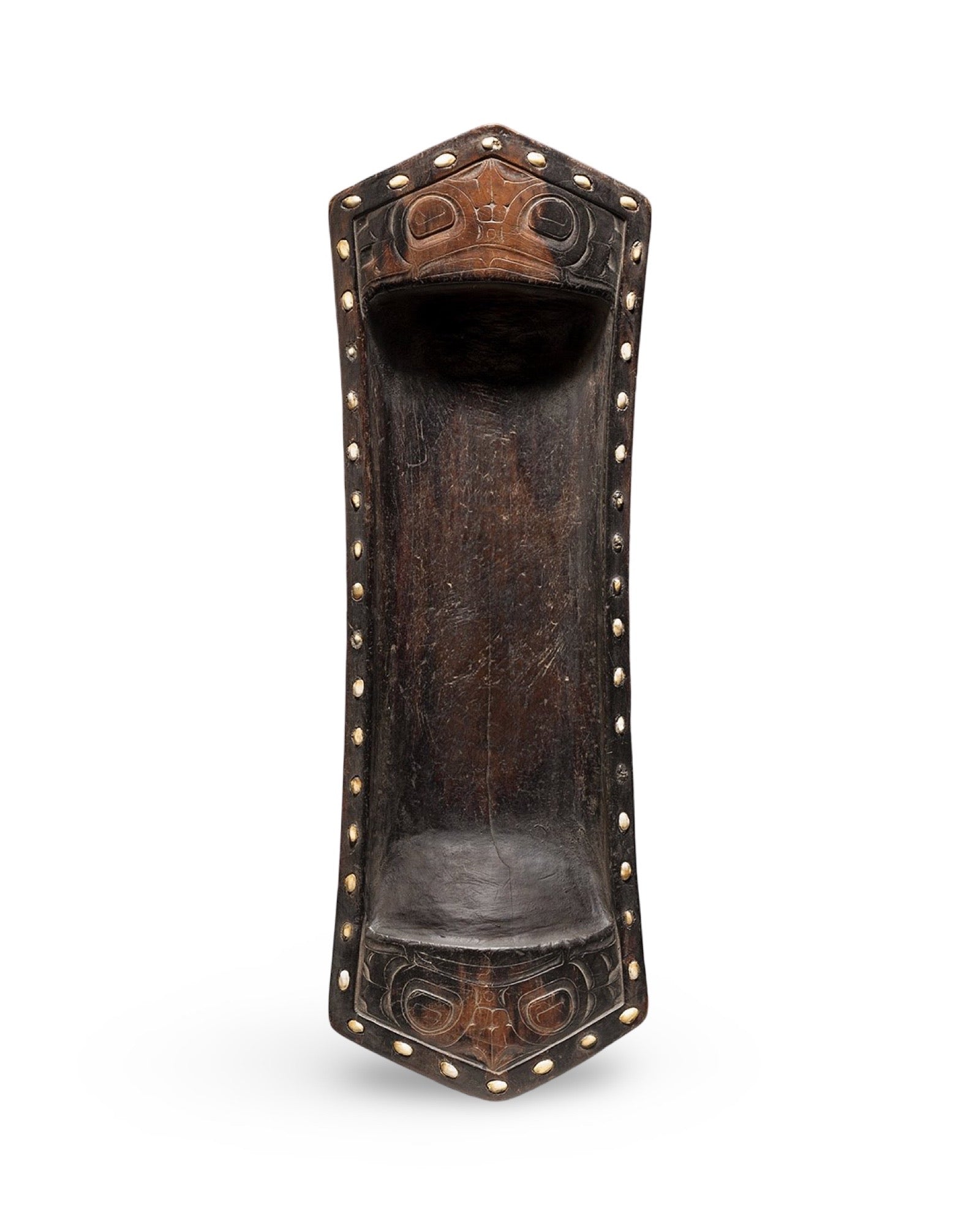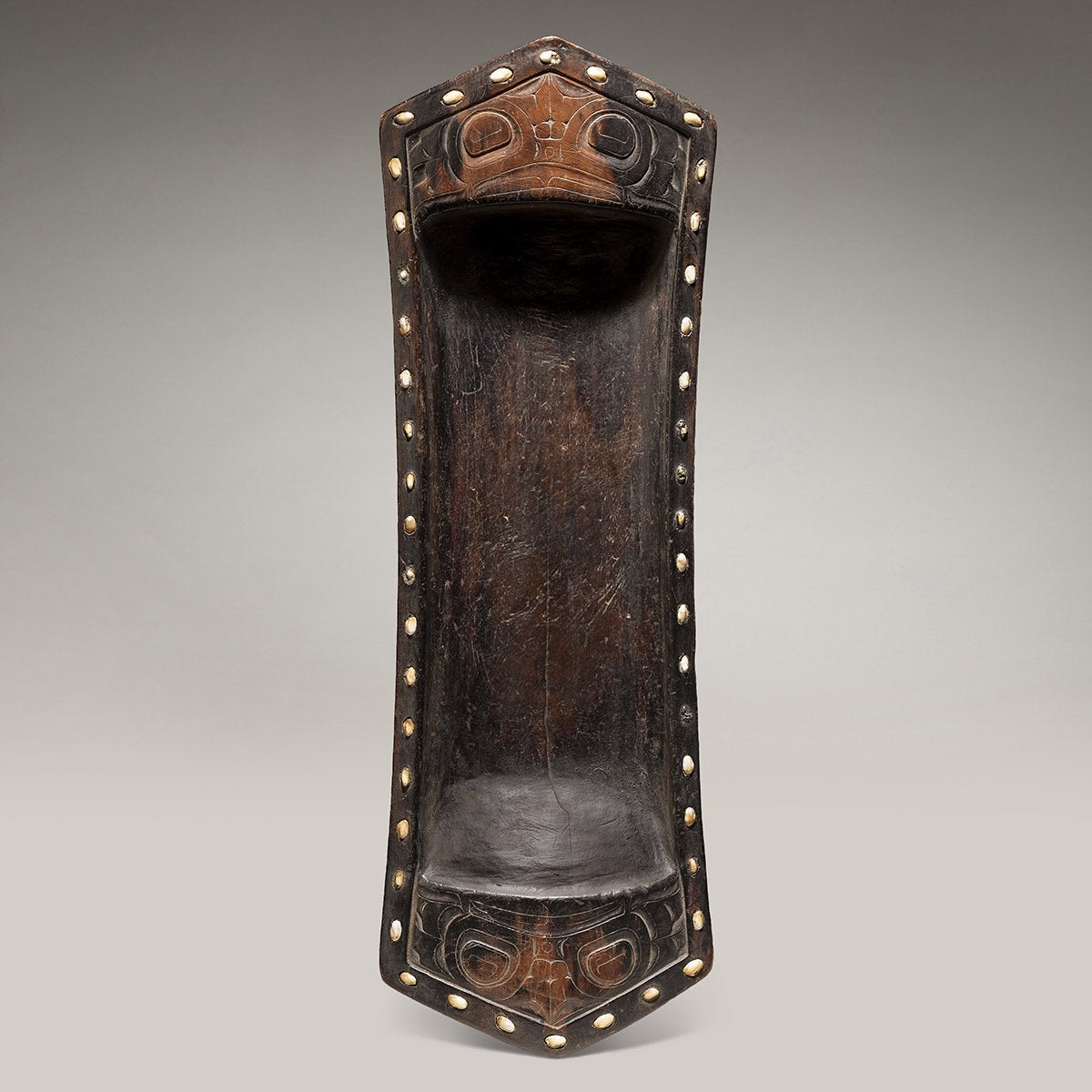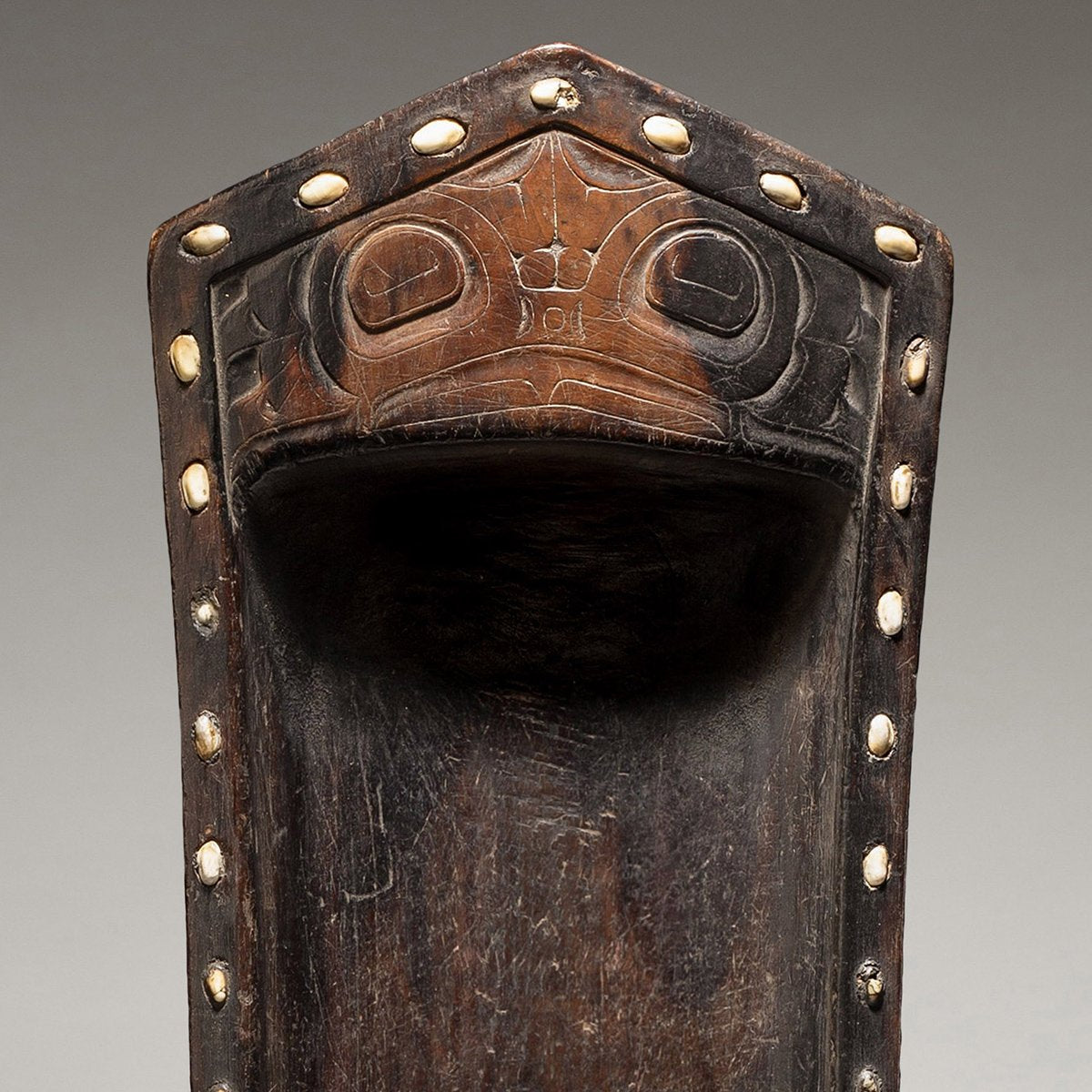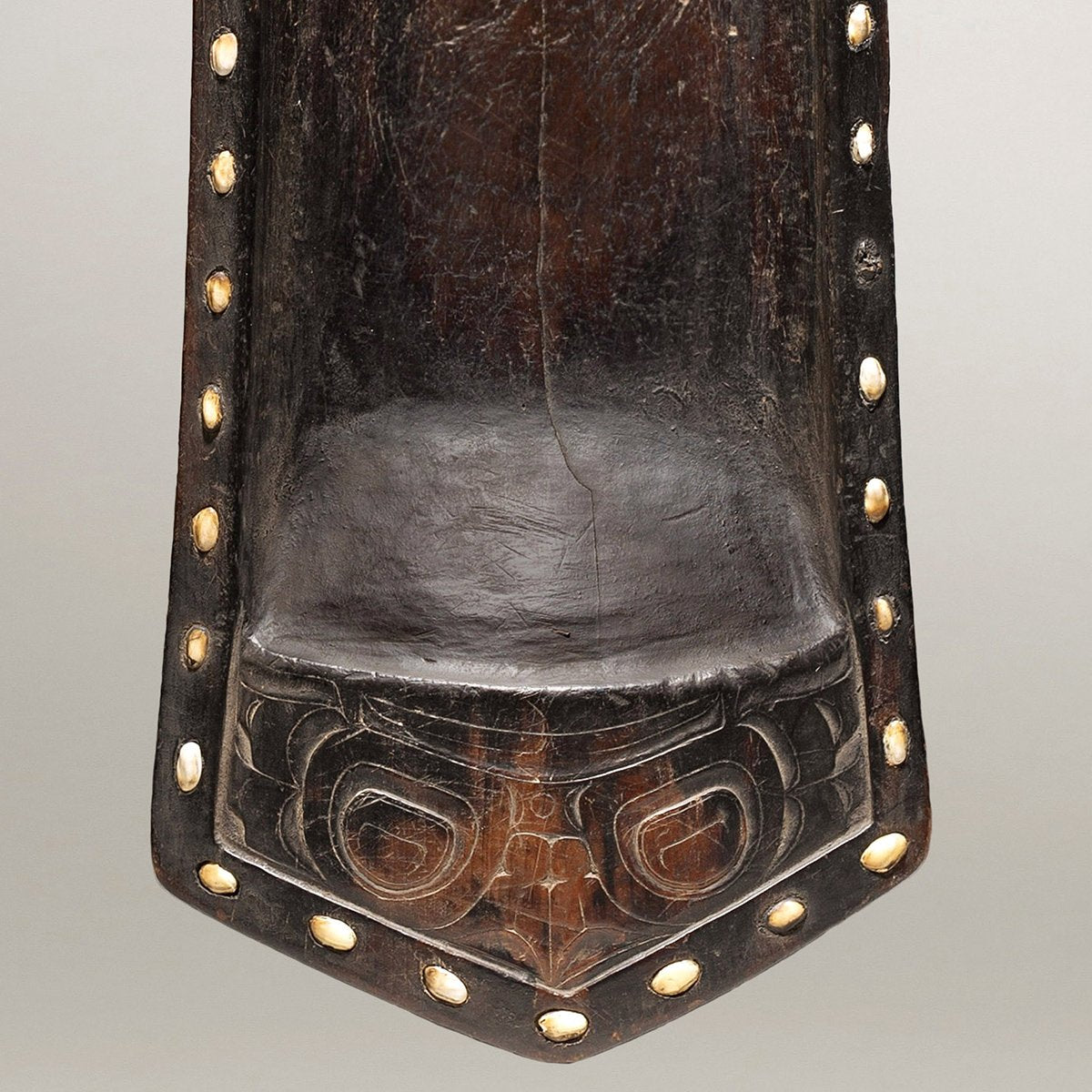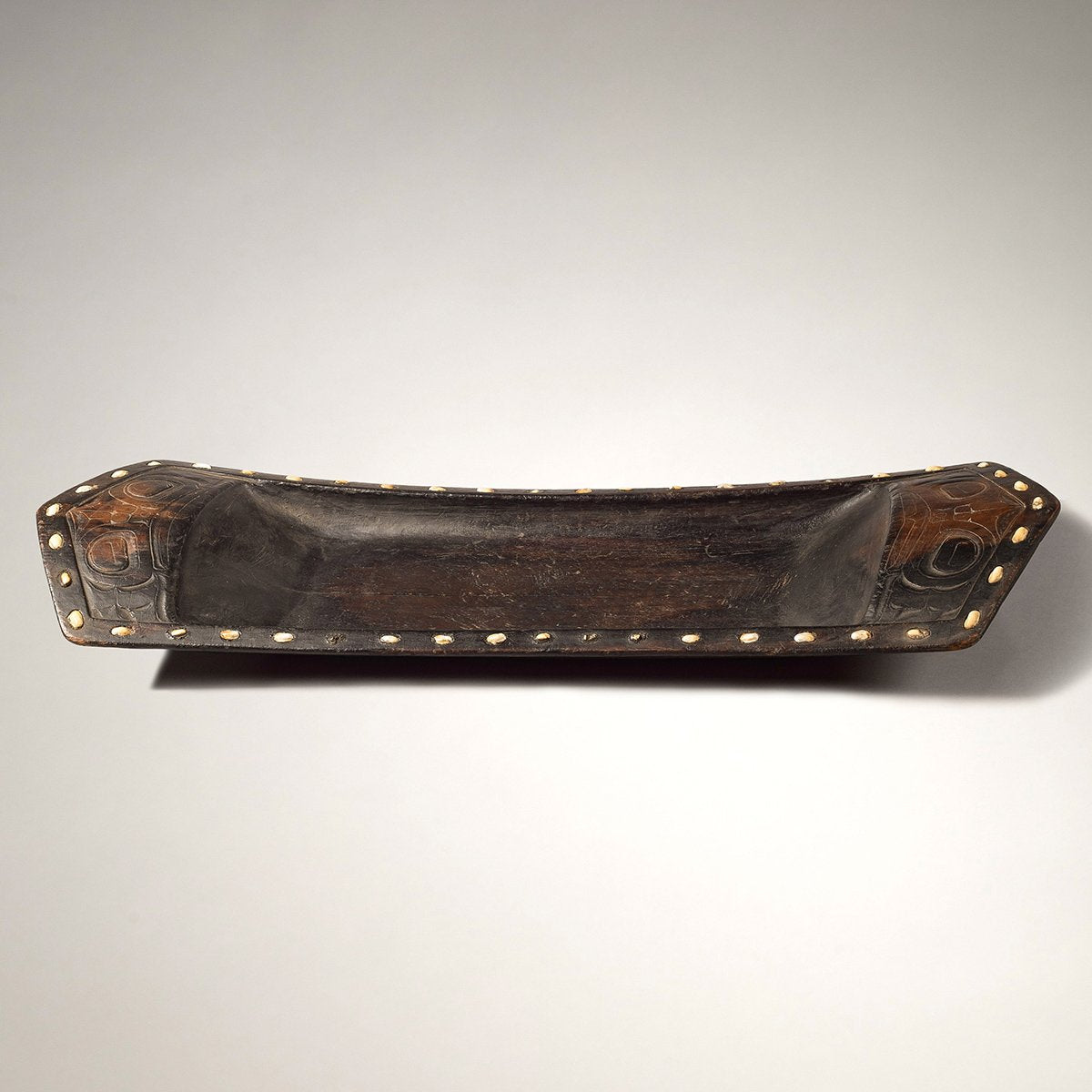Cassera Gallery
SUPERB NORTHWEST COAST CEREMONIAL FEAST TRAY
SUPERB NORTHWEST COAST CEREMONIAL FEAST TRAY
Couldn't load pickup availability
Haida or Tlingit Culture, Coastal Alaska and British Columbia
Circa 1780-1820
Length: 38 inches (96.5 cm)
Alderwood, Turban snail shell opercula.
Provenance: Paul and Mary Thiry Collection – Seattle, Washington
Art Loss Register certificate #S00257110
Masterfully carved by Tlingit artists, elongated shallow trays of this type are among the most elegant food serving vessels of the Northwest Coast. With their flat bottom and undercut rim, they are reminiscent of a river canoe in profile; an affinity of form that reflected the important role of canoes in the gathering and transport of food. Utilized during elaborate potlatch feasting, these special trays were designed to serve smoked fish, often dipped in candlefish oil or oolachan. Great attention was given to the dishes and trays used during a potlatch, and because they were adorned with carved family crests embodying ancient Tlingit ancestors, such trays were important indicators of high hereditary position. Moreover, the size and lavishes of the trays corresponded to the rank of the guest who it served and to the wealth and status of the chiefly host. To their original Tlingit owners, these feast trays were truly what anthropologist Claude Levi-Strauss described as “living boxes”, endowed with a powerful life and vitality that are revealed to us today.
With its finely carved features, shell adornments, and impressive proportions, this beautiful feast tray would have been the exclusive property of a high ranking chief and would have assuredly made a grand entrance during the Tlingit potlatch ceremony. A pair of abstract formline faces depicting ancestral family crests adorn each end panel, and forty-five turban snail opercula inlays adorn the tray’s upper rim. The tray’s Alderwood surface, naturally light in color, has developed a highly desirable rich, dark patina; the result of the innumerable potlatch ceremonies held over many generations.
Share
